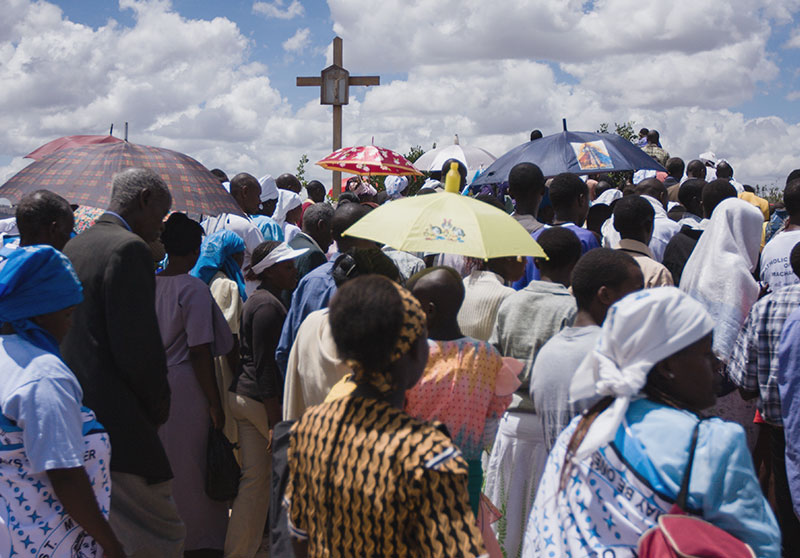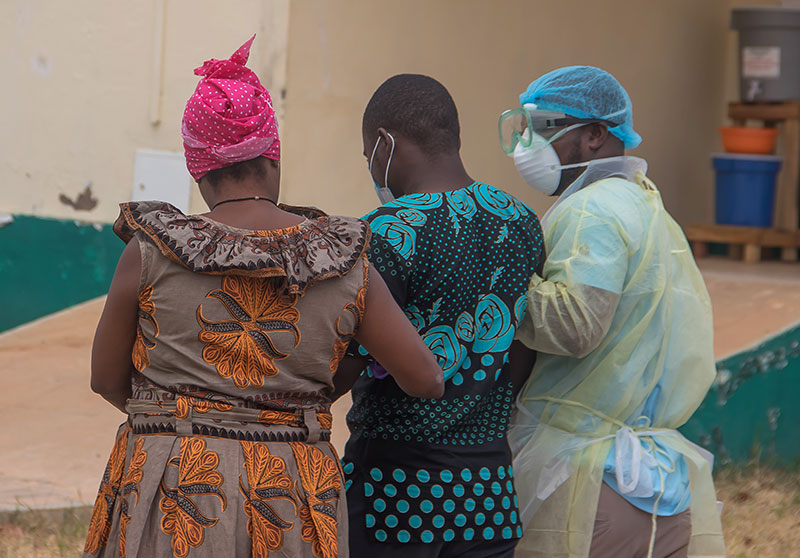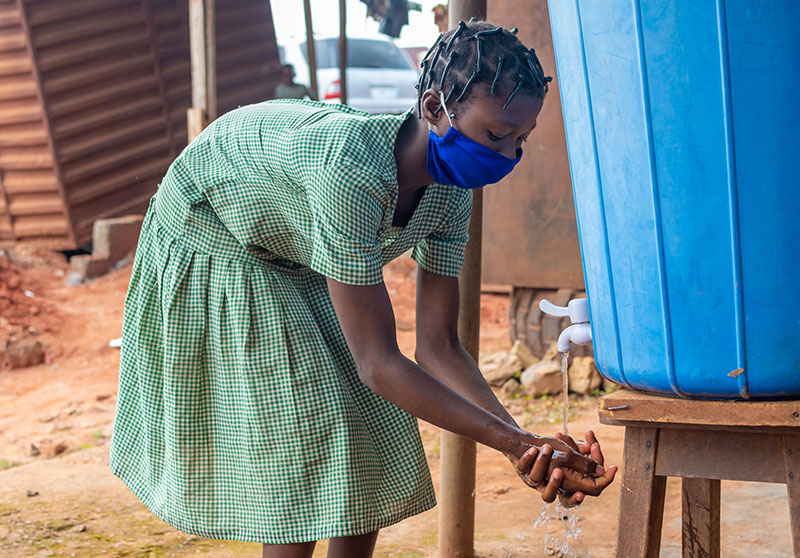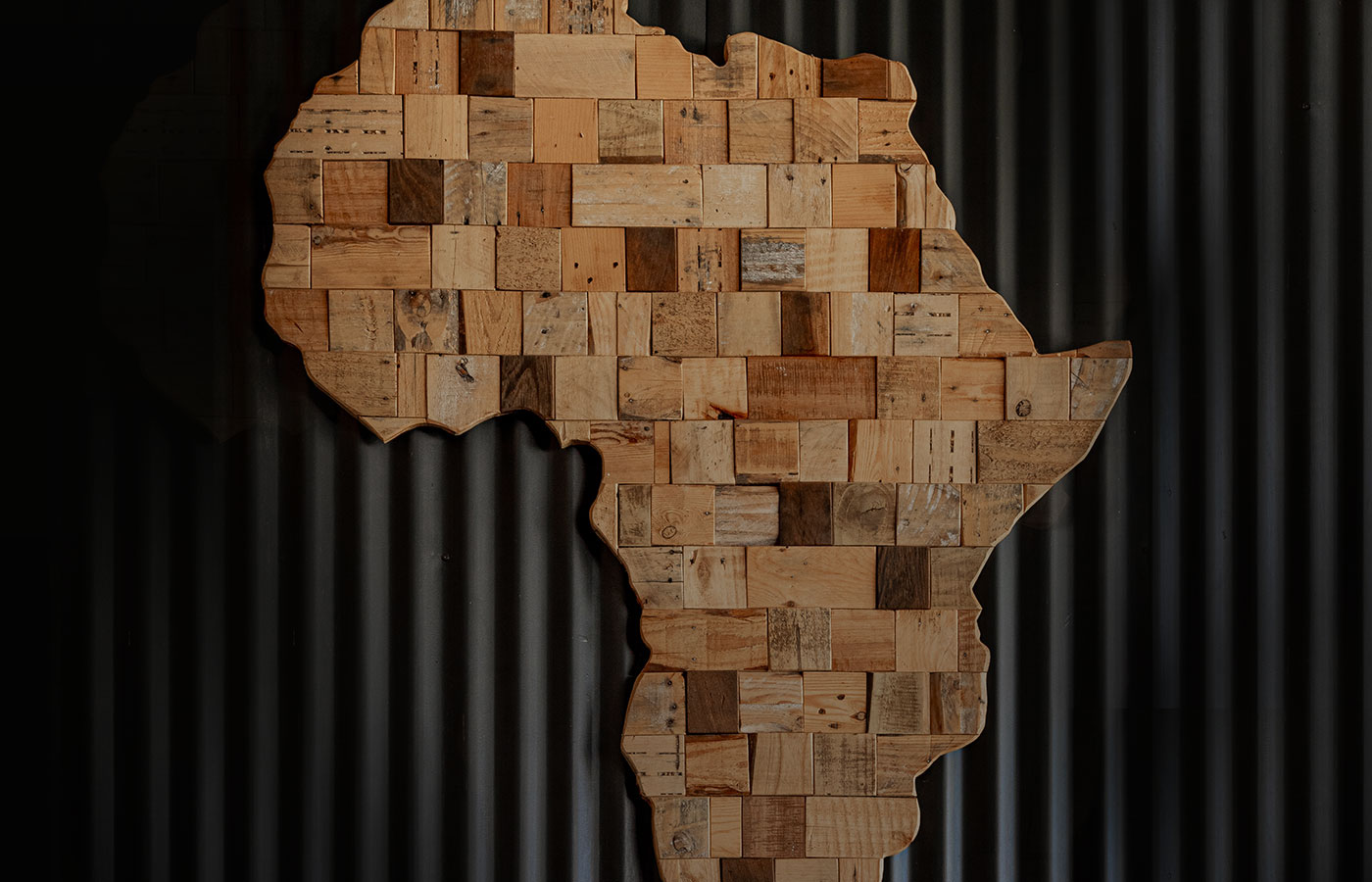The outbreak of the COVID-19 pandemic may for generations constitute a point of reference for many endeavors, issues, and social institutions, including the Christian faith. One of these issues relates to biblical promises of prosperity and wellbeing as they affect matters of health and flourishing. ‘When you have life [implies good health], you have everything’ is a popular African adage that has found its way into recent preaching on prosperity. Besides, there are many passages in the Bible that promise wellbeing for those who belong to and live in obedience to God (cf Deut 28:1-14).
Those who talk about prosperity in the Christian context are right in their position that the purposes of God for human life include flourishing or what Jesus referred to as ‘abundant life’, in contrast to the mission of ‘the thief’ to ‘steal and kill and destroy’ (John 10:10).
A powerful illustration of human restoration to health and wellbeing comes from the story of the demon-possessed man in Mark chapter 5. In that story, the man’s life has been interrupted by demonic possession to the point where ‘night and day among the tombs and in the hills he would cry out and cut himself with stones (Mark 5:5). He encounters Jesus, who casts out the demons and frees him from the affliction. When those who heard of the encounter come to witness the scene, they see the man who had been possessed by the legion of demons ‘sitting there, dressed and in his right mind’ (Mark 5:15). This was a sharp contrast from his previous state.
How is one expected to understand human suffering, whether it be as a result of the war in Ukraine or the poverty, hunger, and squalor in some parts of Africa? In the following reflections, I explore the intersections between biblical prosperity and human flourishing within an African context in which prosperity, health, and wellbeing are not simply socio-economic categories—there are theological implications attached to them.

The transition from demonic affliction to restoration occurs in the power of the Holy Spirit and underscores the interventionist nature of African Pentecostal theological forms of pastoral care.
The African Christian Context
In the African Christian context, especially within the Pentecostal/charismatic streams of the faith, stories like Mark 5 are cherished because of the resonances they have with the functions of religion in society. The transition from demonic affliction to restoration occurs in the power of the Holy Spirit and underscores the interventionist nature of African Pentecostal theological forms of pastoral care.
Whether at home or abroad, as Gerrie ter Haar observes, Africans approach the issues of prosperity, health, and wellbeing from metaphysical understandings:
In Europe, too, most African Christians turn to African-initiated congregations to find spiritual healing for whatever problems they may experience in their new homeland. Spiritual healing is a form of religious healing in which the spiritual worldview of mystical causality prevails. It is an outstanding characteristic of old and new types of African-initiated churches, as it is of many new religious movements in Africa, which practice healing methods that resonate with traditional ideas of sickness and other manifestations of evil.[1]
Christian mission and evangelism are seen as fulfilling a divine mandate when they aim to include the alleviation of pain and suffering—whether physical or spiritual—and systemic social injustice in their message of conversion in salvation.
In a recent study on the notions of ‘principalities and powers’ in Ephesians within the African worldview, Daniel K. Darko concludes that African Christians believe ‘the Spirit fills, guides and empowers individuals and communities to excel in their vocations, personal lives and in overcoming opposing spiritual forces intending to sabotage their prosperity.’[2] In the African traditional context, evil and suffering are both ontological issues, and so it is not uncommon for diviners to be constantly called upon to diagnose the sources of affliction and provide the means to neutralize them.[3]
Prayers in the African Christian context serve the same purposes as a means of dealing with evil and opening the way for divine flourishing to be experienced. Thus, salvation, properly understood within an African Christian context, would encapsulate the forgiveness of sin, peace, vitality, and health—all these within a context of cosmic harmony—best expressed by the Hebrew word shalom and the African word ubuntu.[4]
In many African societies, the Covid-19 pandemic, for example, was problematized in terms of metaphysical evil. So the mobilization of people for prayer to resist its spread became a key response. It is this holistic sense of salvation that brings together justification in Christ, empowerment by the Holy Spirit, and physical flourishing that has led to the wide acceptance of Pentecostal/charismatic spirituality in the non-Western world. African Christian theology does not endorse the materialistic orientation of some prosperity preachers, but African readings of the Bible make room for the physical and spiritual blessings of God that lead to flourishing as a fulfilment of divine promise.[5]

Worlds of Power and Vitality
In the African context, negative occurrences that threaten human life are usually attributed to supernatural sources. Evil could result from sin, the breach of taboos, neglect of ancestral responsibilities, and curses. Evil also occurs through the actions of negative principalities and powers such as witches.
It should therefore come as no surprise that in Africa, so many people ‘are constantly searching for power that will effectively protect them.’[6] The power acquired by people gives them the ability ‘to live and to have an abundant life, to be healthy, and to avoid poverty and all the other misfortunes that trouble everyone from time to time.’[7]
In the Africa context, all forms of sickness and misfortune may be related to the lack of power, and it is in the search for power that we deploy religious resources. Spiritual power is what enables people to take control over things and situations against which they would otherwise be helpless. For example, both traditional diviners and independent churches often either promise power or use words associated with power in their names.
Spiritual power is what enables people to take control over things and situations against which they would otherwise be helpless.
For the same reason, African readings of the Bible at the height of the pandemic focused very much on those parts that promised divine protection, health, and vitality such as Psalm 91:1-3, ‘You who live in the shelter of the Most High, who abide in the shadow of the Almighty, will say to the Lord, “My refuge and my fortress; my God in whom I trust.” For he will deliver you from the snare of the fowler and from the deadly pestilence.’
The mention of deliverance from ‘deadly pestilence’ struck the right chord among many African Christians, because a virus that so affected the powerful nations of the world with all their sophisticated medical systems ought not to be underestimated, supernaturally speaking.
Amid the reality of evil, and in the search for power and vitality, we are all forced to ask the critical question, ‘Where is our God?’ Businesses have gone down and domestic incomes have taken a hit; health has waned and many have died.
The search for power and effective protection against evil is ‘reason for the popularity of new religious movements that promise original solutions for contemporary problems,’ note Stephen Ellis and Gerrie ter Haar. ‘Just as harm is thought to be caused by those who manipulate the spirit world for their own selfish purposes, it is to the same arena that people turn for effective remedies, in the form of powers and medicines that can protect and heal them.’[8]

The Pandemic and Christian Living
At the beginning of the pandemic, people were told that until the right scientific breakthroughs for a vaccine was achieved, our help was to rely on the non-pharmaceutical procedures of frequent washing and sanitization of hands and spaces, and the observance of physical distancing. These are counter to the typical traditional African setting where poverty and a strong sense of community simply make physical distancing impossible and refusal to shake hands an insult. Among the Akan of Ghana, for example, refusing to shake hands indicates there are issues to be settled.
Our public theology must serve the public good by responding to those who hurt in the face of evil without discrimination.
How does the church in Africa propose to offer pastoral leadership and care during the social and medical difficulties that average church members are facing now, and in the uncertain times that lie ahead? What decisions and policies does the church have to put in place to counsel, provide pastoral care in tangible ways, and where needed, even support others materially? And if we are going to go by the principle of the parable of the Good Samaritan, then our ecclesial interventions ought to be non-discriminatory. Our public theology must serve the public good by responding to those who hurt in the face of evil without discrimination.
The pandemic has also affected our understanding of world Christianity and its contextual expressions and responses, especially in the face of the enigma of evil. How do we account for Christian notions of flourishing during pain, disease, and economic decline?
The Covid-19 pandemic has permanently interrupted how the Christian life is lived and expressed within the public sphere. It struck at a time on the Christian calendar when Christians worldwide were preparing to celebrate the major landmarks of the faith—Crucifixion, Resurrection, Ascension, and Pentecost.[9] Whether these Christian landmarks were to be celebrated in religious services, masses, or as social gatherings, all in-person meetings had to be aborted.
The spread of the coronavirus negatively affected economics, disrupted political and social life, and religious life as well. When such negativities strike in terms of affliction, people search for answers. In that respect, theology must serve the public good and not be domesticated for private consumption. During the pandemic, the Christian promises of salvation and deliverance from evil became one of the main sources of appeal as people sought to make sense out of the pandemic situation. But most importantly, the outbreak of the pandemic challenged our faith in terms of the relationship between prosperity and health on the one hand and pain and suffering on the other.
The heart of the mission of the global church is to be relevant in human life and in the world.
Reflection for the Global Church
In addition to persecution, which often comes with the preaching of the gospel, suffering that arises from other sources including social injustices and the abuse of power have become the lot of many people the world over. The heart of the mission of the global church is to be relevant in human life and in the world. The reality of suffering therefore challenges the global church to restrategise and devise ways in which the church not only preaches salvation in Christ, but also to live the truth of the gospel the way Jesus did. Being the salt of the earth and the light of the world, should mean that the global church works to bring hope and flourishing to a world in need of God’s intervention within the difficult circumstances of human life.
Endnotes
- Gerrie ter Haar, How God Became African: African Spirituality and Western Secular Thought (Philadelphia: University of Pennsylvania Press, 2009), 45.
- Daniel K. Darko, Against Principalities and Powers: Spiritual Beings in Relation to Communal Identity and the Moral Discouse of Ephesians (Carlisle, Cumbria: Hippo Books, 2020), 198.
- Laurenti Magesa, African Religion: The Moral Traditions of Abundant Life (Maryknoll, NY: Orbis Books, 1997).
- Magesa, African Religion.
- Editor’s note: See article by J. Kwabena Asamoah-Gyadu, entitled ‘The Prosperity Gospel and its Challenge to Mission in our Time,’ in July 2014 issue of Lausanne Global Analysis, https://lausanne.org/content/lga/2014-07/the-prosperity-gospel-and-its-challenge-to-mission-in-our-time.
- Stephen Ellis and Gerrie ter Haar, Worlds of Power: Religious Thought and Political Practice in Africa (London: Hurst and Co., 2004), 95.
- Ellis and ter Haar, Worlds of Power, 97.
- Ellis and ter Haar, Worlds of Power, 95.
- Editor’s note: See article by J. Kwabena Asamoah-Gyadu, entitled ‘The Christian Calendar and COVID-19’ in September 2020 issue of Lausanne Global Analysis, https://lausanne.org/content/lga/2020-09/the-christian-calendar-and-covid-19.
Photo credits
Photo by Magda Ehlers: https://www.pexels.com/photo/brown-map-on-map-2660262/

